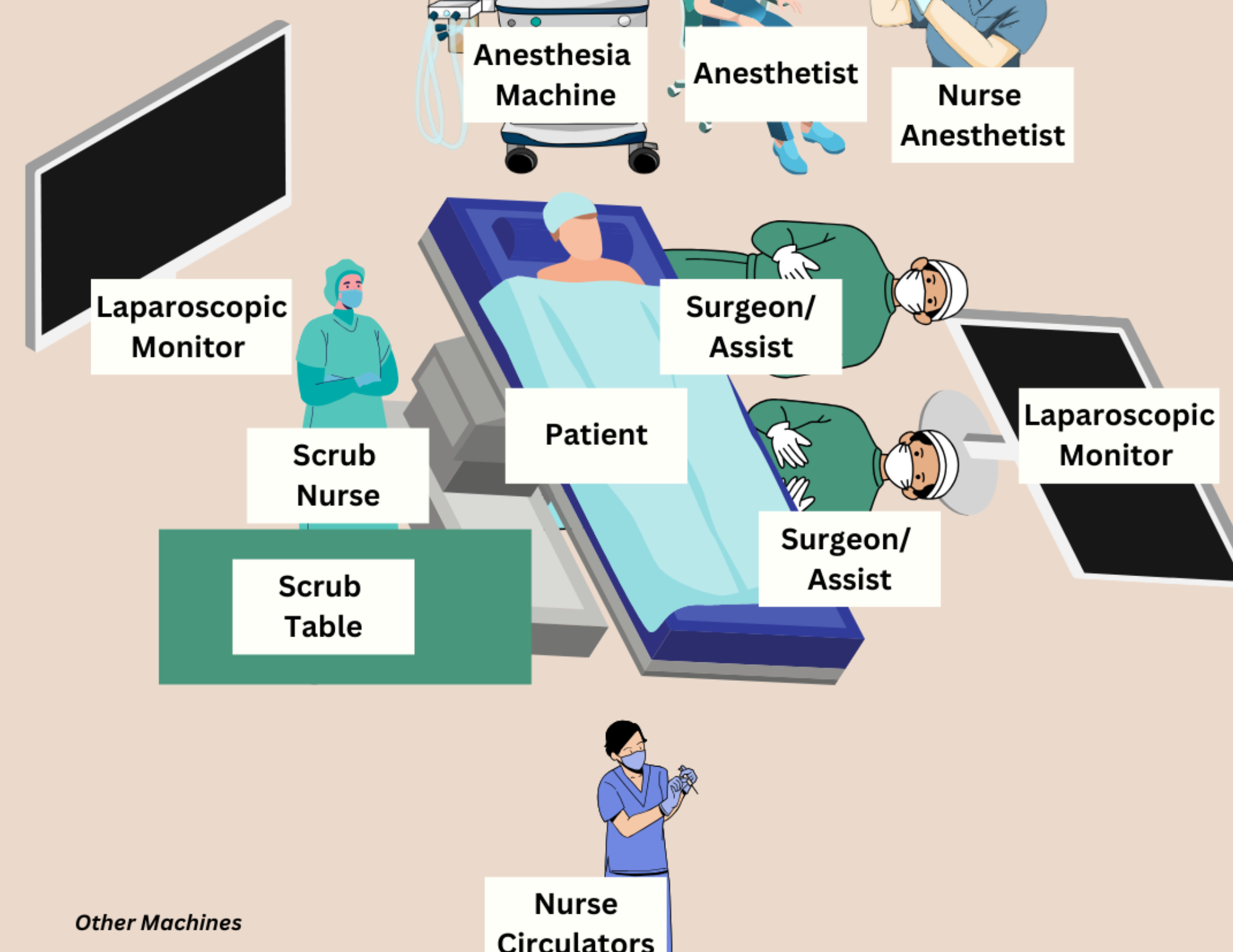still remember my first surgical count like it was yesterday—my hands were shaking, my mind blank, and I was terrified of making a mistake. The pressure felt overwhelming, knowing a patient’s safety depended on my accuracy. But with guidance, practice, and support from my OR team, I learned to master the surgical count. In this blog post, I’m sharing everything I wish I knew back then: the step-by-step process, what items to include, when to count, and real tips that helped me stay calm and focused. If you’re new to the OR, this guide will help you feel prepared.
Tag: NURSES
Your Back Deserves Better: A Real-World Guide for Nurses Battling Musculoskeletal Strain
Long shifts, heavy lifting, and nonstop standing—nursing takes a toll. Musculoskeletal strain creeps in quietly but can derail your energy and joy if left unchecked. This guide empowers nurses to protect their bodies with smart habits, supportive tools, and a mindset that values strength through care—for others and themselves. Let me know if you’d like an alternate version for Instagram or your podcast intro!
10 Ways to Stay Energized During Long Nursing Shifts
Nursing demands stamina, but smart strategies can keep you energized. Stay hydrated, fuel up with protein-rich snacks, and prioritize short movement breaks. Deep breathing resets focus, while positive interactions lift morale. Manage stress with mindfulness, and get quality sleep post-shift to recharge for the next challenge
3 Common Myths About Operating Room Nurses
Operating room (OR) nurses are an essential part of the surgical team, yet myths about operating room nursing often lead to misconceptions about their role. Many assume OR nurses only pass instruments to surgeons or don’t provide patient care, but the reality is far more complex.
OR nurses are responsible for maintaining sterility, monitoring patients, and responding to emergencies—all while coordinating with the surgical team to ensure procedures run smoothly. Their role requires precision, expertise, and quick decision-making in high-stakes environments.
Mind Over Scalpel: Mental Health in the Operating Room
Being an operating room nurse is not just physically demanding—it’s mentally and emotionally intense. Every day, we navigate high-stakes situations, make split-second decisions, and carry the emotional weight of life-or-death moments. Yet, the conversation about mental health for operating room nurses often takes a backseat.
What Life Lessons Everyone Can Learn from the Operating Room
The operating room (OR) is a space like no other—a high-pressure environment where every moment counts and teamwork is the glue that holds it all together. But the OR isn’t just a place where lives are saved; it’s also a goldmine of life lessons anyone can apply. Whether you’re navigating your 9-to-5 job, juggling family life, or facing challenges head-on, the OR has something to teach us all.
Why Being a Nurse Is a Thankless Job
When people think of nurses, they often picture warm smiles, reassuring words, and skilled hands working tirelessly to save lives. It’s an image that evokes admiration and gratitude. Yet, beneath the surface, nursing is often a thankless job—a profession that demands selflessness, resilience, and unyielding dedication, yet rarely gets the recognition it deserves.
The Heart of Nursing
At its core, nursing is about caring for others during their most vulnerable moments. Nurses are the backbone of healthcare systems, bridging the gap between doctors and patients. They administer medications, monitor vital signs, comfort worried families, and advocate for patients’ needs.
But their responsibilities don’t end there. A nurse’s day is often filled with moments that test their emotional and physical limits. They work long hours, often sacrificing personal time and sleep, all while carrying the weight of others’ pain and suffering.
Despite these sacrifices, nursing remains a thankless job. Why? Because much of what nurses do happens behind the scenes. Their efforts are in
Top 6 Impactful Reasons Disposable Bipolar Instruments Are Essential in Surgeries
Disposable bipolar instruments are super important in modern surgeries, especially those that are minimally invasive. These tools help surgeons cut, coagulate (which means to stop bleeding), and manipulate tissues with great precision. One of the best things about them is that they minimize the risk of heat damage to nearby tissues.
How Do They Work?
Unlike monopolar instruments, which need a grounding pad, bipolar instruments use two electrodes. These electrodes pass electrical curren
Getting Ready for Open Hernia Surgery as a Nurse: What You Need to Know
Open hernia surgery is a common procedure to fix hernias. The surgeon makes a small cut near the hernia, pushes the tissue back into place, and secures the area with stitches or a mesh. This helps relieve pain and prevents problems in the future. It’s incredible how this procedure, though routine for us, can make such a significant difference in someone’s life.
Grasping Instrument: Forceps A Comprehensive Overview
Forceps are special tools that look a lot like tweezers, and they’re absolutely essential in any surgery. Surgeons use forceps to grab, hold, and manipulate tissues and other objects during operations. Think of them as the reliable partners that make the intricate work of surgery possible. Whether it’s holding delicate tissues, clamping blood vessels, or assisting in suturing, forceps are indispensable in surgical practice.
Laparoscopic Cholecystectomy: The Essential Study Resource for Medical Students
Laparoscopic Cholecystectomy: The Ultimate Study Resource for Medical Students”
Laparoscopic cholecystectomy, or lap chole, is a minimally invasive surgical procedure used to remove the gallbladder. This guide provides an in-depth look at why lap chole is necessary, the instruments used, and the step-by-step process. Designed as an essential resource for medical students, it covers everything from the benefits and recovery to the potential risks. Dive into this ultimate study resource to enhance your understanding of this common surgical procedure.
The Crucial Role of Sterilization in Surgery: Safeguarding Patient Health and Ensuring Surgical Success
Safeguarding Health Through Sterilization in Surgery Discover the crucial role of sterilization in surgery, an essential process that protects patient health and ensures surgical success. This passionate and educative blog post delves into the importance of maintaining a sterile environment, explores various sterilization techniques, and highlights the profound impact on surgical outcomes. Learn about the evolution of sterilization practices and the unwavering commitment to patient safety in the medical field. Join us in uncovering how sterilization in surgery continues to save lives every day!











